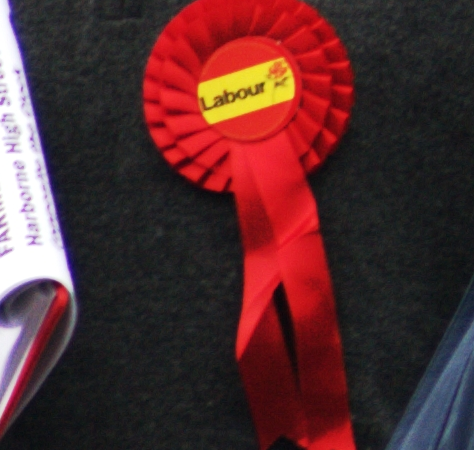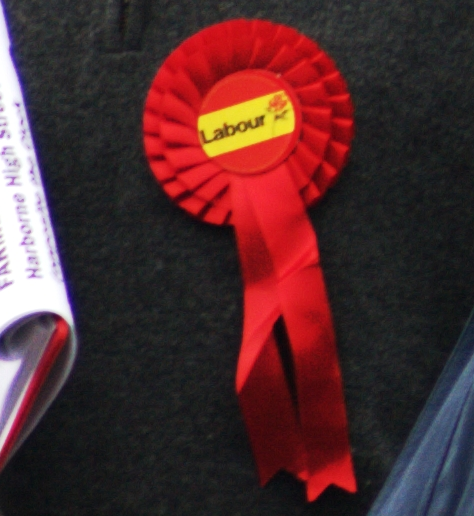Labour politics and community organising – do we want to go there?

 It was a Labour Party politics filled evening for me yesterday.
It was a Labour Party politics filled evening for me yesterday.
First I heard Arnold Graf of the Industrial Areas Foundation from the United States talk at a Labour Values event about how his organisation had built networks of community organisations. Graf works with Maurice Glasman, one of the people Ed Miliband trusts to help build better links between Labour and community groups. Graf explained how his conversations with politicians in the UK showed a disconnect between them and their electorates, how questions he had posed to politicians were often met with no clear answers. Quite how he would change things was rather less clear, be that through organisations like London Citizens, or by up-skilling and changing political parties from within.
I then hopped on my bike and headed off to the branch meeting of Bow East Labour Party. I like Bow East Labour – unlike ward meetings I have attended elsewhere in the past, the discussion is interesting and the people are engaged. As ever Councillor Marc Francis was present and reported on the multitude of things he has been doing. One of those is the ongoing battle over the number of commercial events to be staged in Victoria Park throughout the summer. All the Tower Hamlets councillors had agreed that this number should be restricted to six nights of events, but it looks like – at the initiative of the council’s events team, and with the decision only needing the approval of the directly elected mayor – there will instead be ten nights of events.
Now tell me please, how can community organising possibly bridge this gap?
Marc, or the rest of us in Bow East, and the people that run, walk their dogs in the park etc., could all band together to make a huge campaign against the events, networks of local people, try to petition the mayor, get him to public meetings, run PR campaigns against his decision… Or – shock horror – the power to do something about issues like this could actually be vested with the councillors elected by the local community already!
More widely you could take the example of numerous protests against cuts to local council services (this in Camden for example), and work out what the response should be. Some networks of organisations to do work militating against the cuts? Even online like the excellent False Economy site? Yes, sure, these things are worthwhile. But they deal with the symptoms, not the cause of the problem.
The basic issue here, as in Bow, is a structural, democratic disconnect – only 20-30% of the money spent by London’s borough councils is actually raised through Council Tax. The rest comes from central government. So if you’re a Councillor in any borough your hands are financially tied by central government, and if central government cuts then – essentially – tough shit.
Maybe I’m too old fashioned, too structures focussed, or too influenced by the politics of European countries, but how about Labour advocating a proper programme of genuine democratic renewal and decentralisation of political and financial power as a response to these very real issues?
October 14, 2006 via Flickr, Creative Commons Attribution
Ill-defined as big society is, I don’t think it’s really about volunteering & charities. If you added up all the voluntary sector & philanthropists, you still don’t have as much power to make a real difference to people’s lives as the public sector – imagine top quality schools, housing, criminal justice system, etc.
I’m not sure what you mean by classic local democracy, but how local money is spent (& how it’s earned, to take your parks example) has got to be a key component.
Kids Company was on a Newsnight big society piece recently – someone asked why Kids Co wasn’t funded by the council, since it seemed to be doing better than social services with troubled children. The big society answer, as I understand it, is get involved & make a case for it to the council – ie get organised. Lots of folk have forgotten how to organise, hence Citizens UK etc. Local councillors could/should be the first port of call for organised groups, including party activists, but often they’re not.
I’m interested in European ways – the French system seems a lot more decentralised in some respects, more centralised in others. Will you post something on this?
@Catriona – I’m interested by the first paragraph of your response. Because for me that is precisely where the Big Society misses the point. OK, it might be about controlling a teacher, a police department or something, but there is no role for classic local democracy in Big Society as far as I am aware. That’s where I would like to see energy focussed, and Labour could do that if it were brave enough…
Why doesn’t Labour advocate democratic renewal & decentralisation of political & financial power? Could be because Cameron’s big society idea is (mostly, imo) about just that – local people holding local authorities to account.
That’s why the likes of Francis Maude say they can’t ‘intervene’ when councils decide to cut services or vol sector grants – that would defeat the whole purpose of mobilising local action.
There’s always been a tension in government between letting local people get on with things and diving in to the rescue it when you don’t like what they’re doing. Nothing much to do with left or right, this one. Thatcher’s right to buy, Blair’s Neighbourhood Renewal targets. ‘Postcode lottery’ & ‘not being disadvantaged by where you live’ v ‘local people know best’.
Trouble is, in any local area the people most affected by the quality of parks/leisure fax, policing, council housing, NHS, education are the least well off – others can & do buy out (own housing, private schools etc) and are less motivated to change things. Shocking inequalities roll on.
If you add all government funding for a local area together (council, local police, NHS, etc) it’s about £2-3 billion annually, I’m told – huge, but mostly spoken for, as you say.
Great post. Glasman is Labour’s answer to Phillip Blond. I’m unconvinced that community organising takes us past the petitioning model, although London Citizens is good at getting local people together and also good at getting top decision-makers to agree to eg a living wage.
Me, I’m more into local long-term, systemic change, particularly the co-production of local public services – getting community organisations and the local public sector (including councillors) together to negotiate and co-design better (publicly funded) services that make a real difference, particularly to those who can’t afford to buy out.